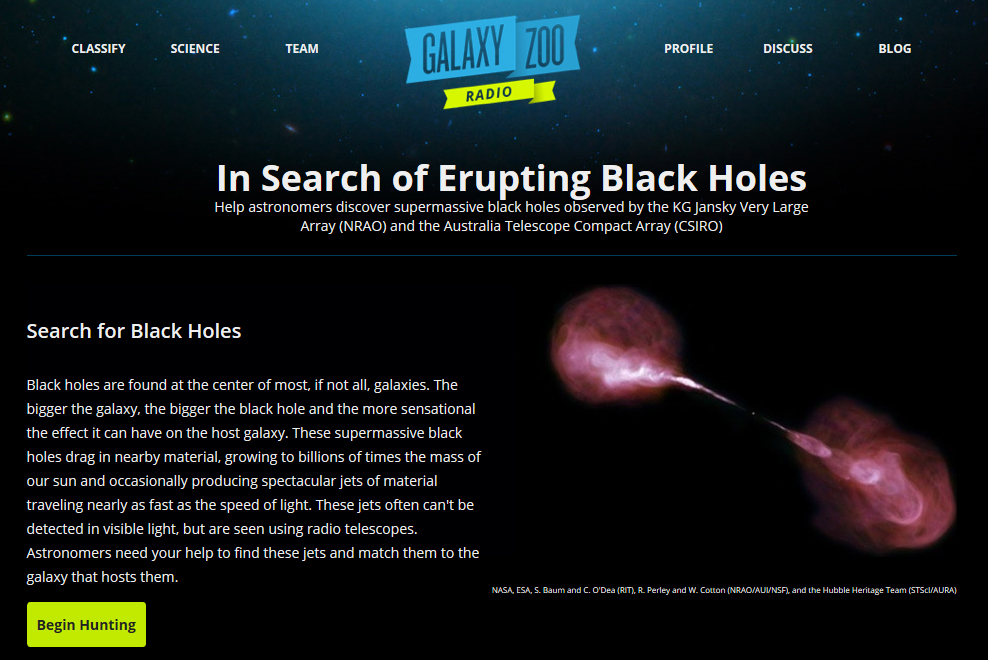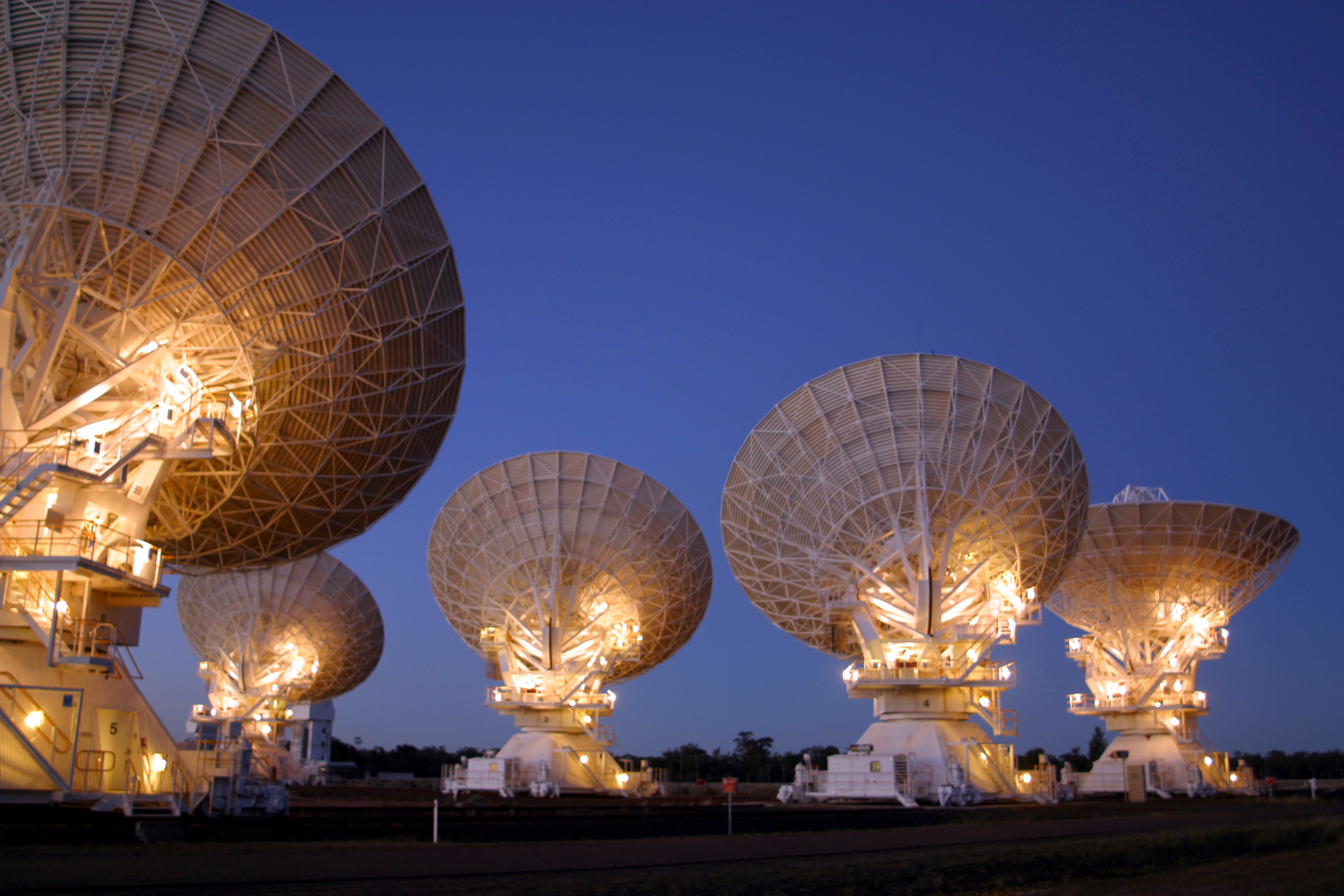At the end of last year we brought you a new citizen science program: Radio Galaxy Zoo.
Now, five months on, we thought we’d check in with CSIRO’s Dr Julie Banfield, Radio Galaxy Zoo Project Scientist, to see how the project is going.
Julie, what is Radio Galaxy Zoo?
If you have a computer and internet connection then Radio Galaxy Zoo can turn you into a radio astronomy detective.
By comparing images taken by radio telescopes – the Very Large Array in New Mexico, USA and CSIRO’s Australia Telescope Compact Array – with infrared images from NASA’s Wide-field Infrared Survey Explorer and Spitzer Space Telescope, you can help to identify the galaxies that black holes call ‘home’.
CSIRO’s Australia Telescope Compact Array.
How many people are now involved in Radio Galaxy Zoo?
As of 16 May 2014 we have 4,285 participants.
How many radio galaxies have you found?
Our volunteers have examined over 22,700 radio sources!
What’s the most interesting object you’ve found so far?
Two of our citizen scientists have discovered an unknown source and compiled useful information for us to follow up. It’s known as a ‘wide angle tail’ radio source. The interesting thing about it is it’s the largest one observed and lives in an area where we don’t expect to find these types of objects.
What’s next for Radio Galaxy Zoo?
We’re looking into all the weird and wonderful radio sources our citizen scientists have discovered and currently following up these objects. We are also looking into ways to incorporate other radio surveys from around the world so we can be ready when we start a new radio survey, Evolutionary Map of the Universe, with CSIRO’s newest radio telescope, the Australian Square Kilometre Array Pathfinder.
How do people get involved in Radio Galaxy Zoo?
All you have to do is head over to radio.galaxyzoo.org and begin hunting. You can either sign up and track your progress or you can hunt anonymously.
Do you need any special training or equipment to participate?
All you need is to connect to the internet on a computer or mobile device.
So, are you ready to be a radio astronomy detective?
Check out Radio Galaxy Zoo at radio.galaxyzoo.org. Go on, you know you want to!



